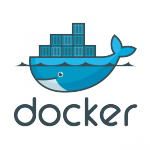Businesses deploy sensitive data to new environments without adequate security

According to a new report, 93 percent of enterprises will use sensitive data in advanced technology environments (such as cloud, SaaS, big data, IoT and container) this year.
But 63 percent of those respondents also believe their organizations are deploying these technologies ahead of having appropriate data security solutions in place. These are the findings of the latest Data Threat Report from Thales e-Security and 451 Research.
Docker launches new enterprise platform

Containerization specialist Docker is releasing a new commercial platform for enterprise development and IT ops teams that build, run, and operate business-critical applications.
Docker Enterprise Edition (EE) is made up of a container runtime with integrated and multi-tenant orchestration, security and management, in addition to an ecosystem of certified technologies.
New container platform speeds up Docker deployment

Containerization has seen a big increase in popularity in recent years, but companies are keen to ensure they're able to deploy containers quickly and keep control of the costs.
Container infrastructure specialist Diamanti is launching a new purpose-built appliance for containerized applications, allowing businesses to deploy Docker containers quickly with guaranteed service levels and at a lower cost than traditional data center infrastructure.
What you need to know about containerization

Just as in shipping physical cargoes where a load in a container can share transport on a train or ship with other similar loads while remaining separate, so in computing a containerized application is able to share machine space with many others whilst remaining separate in its own "box".
You might be wondering how this differs from full virtualization? A virtual machine provides a complete environment running an operating system and applications totally separate from the OS of the host server. A containerized application on the other hand is fully self-contained in terms of a business application, but is designed to work with the operating system kernel of the host. This provides a lighter weight alternative to full virtualization, allowing the application to be run on any physical machine that shares the same operating system, but otherwise behaving as though it’s independent.
New automation tool helps businesses deploy Docker containers

Automated software delivery specialist Puppet is launching a new Docker Image Build tool, which automates the container build process to help organizations as they define, build, and deploy containers into production environments.
It adds to existing Puppet functionality for installing and managing container infrastructure, providing a standard, consistent way to install Docker operating environments as well as building and deploying containers.
Inadequate storage tools hold back container deployment

The use of containers delivers many benefits including lower costs and greater agility. But the results of a new survey show that a lack of adequate tools to handle storage is holding back deployment.
The survey by data storage company Portworx finds that 55 percent of IT professionals would deploy stateful containers within one year if storage challenges could be resolved.
What you need to know about Docker

Considering it only came into existence in 2013, Docker has experienced a monumental rise in both the consumer and business markets. From such humble beginnings, (the earliest version of the technology was developed by founder Solomon Hykes in his mother’s basement), Docker has managed to secure a number of high-profile partners and in 2015 received a valuation in excess of $1 billion. But what exactly is Docker?
According to the company itself, "Docker allows you to package an application with all of its dependencies into a standardized unit for software development". The way in which Docker does this is through a software feature known as a container.
Cisco buys container-as-a-service startup ContainerX

Cisco wants to transform into a software company and to further move towards that goal it announced the acquisition of CointainerX, a small start-up formed by engineers from Citrix, Microsoft and VMware.
The container-as-a-service business creates virtual containers for data centres, for Windows and Linux. The financial details of the agreement were not disclosed. ContainerX didn’t try to hide the excitement.
Docker Engine will get built-in container orchestration

During its developer conference in Seattle this week, Docker announced that container orchestration will now be built right into its Docker Engine, making the process of building, deploying and orchestrating containers far easier for its users.
The company has basically taken the core features of Docker Swarm and Compose and has added them to its core Engine to simplify the process of using containers in production. Both of these standalone products only recently exited their beta phases last November and it is impressive that Docker has been able to add them to Docker Engine in such a short period of time.
Portworx launches enterprise-class storage for containers

The use of containers has done much to transform the deployment of applications. However, storage hasn't kept pace as it's difficult to scale up to cope with increased workloads.
Data storage specialist Portworx is launching new purpose-built, enterprise-class storage solution for containers. PX-Enterprise will enable IT to match the agility of application developers and deliver lower costs compared to legacy solutions.
The container market is about more than just Docker

When containers are mentioned, Docker is probably the system that comes to mind. But in fact the container market is much bigger than that with over 100 products that use containers to amplify the benefits of agile development for their users.
Of those, 20 come from public companies and over 70 from private companies, which collectively represent $1.7 billion in venture capital funding. 88 percent of enterprises say they're shifting to a DevOps strategy, and containers are changing the nature of DevOps and transforming infrastructure.
7 things to consider before adopting Docker

Docker has been hailed as a cycle-shrinking, cost-reducing panacea by DevOps, though ROI is far from proven with this nascent technology. So do companies have more than just hype or guesswork to go on?
Whilst businesses continue to embrace containerization, uncertainties, and misconceptions about Docker linger, not least of which is that it always reduces costs and saves time. Here are the pros and cons of Docker, and what companies need to think more about before casting their vote of confidence and investing in this space.
New solution targets threats to containerized apps

Running applications in containers is increasingly popular, but whilst it offers benefits in terms of the flexibility to run apps anywhere, it raises fresh challenges for keeping them secure.
A new set of automated capabilities that defend against active threats targeting container environments is being launched by security solutions company Twistlock. Twistlock Runtime is fully automated and designed to detect and stop sophisticated runtime attacks -- including APTs and zero-day exploits.
DevOps and Docker adoption take off in the enterprise

Back in February RightScale released the results of its latest State of the Cloud Report. This year it asked some additional questions surrounding the use of DevOps tools including Docker.
Today it has launched an additional DevOps Trends report offering a look at these extra findings. These show that DevOps adoption increased from 66 percent in 2015 to 74 percent in 2016 and that Docker adoption has more than doubled in the same period.
Microsoft Azure's Container Service now generally available

Microsoft Azure's Container Service in now available to help companies deploy and manage containers using their choice of software.
Users of the service will be able to move their container workloads to the cloud easily and can still run their operations using open-source tools. The two most popular tools -- Mesosphere’s Data Centre Operating System (DC/OS) and Docker’s Swarm and Compose -- will be both be supported by Azure Container Service and users will be able to continue running their operations using the one they prefer.
Recent Headlines
Most Commented Stories
BetaNews, your source for breaking tech news, reviews, and in-depth reporting since 1998.
© 1998-2025 BetaNews, Inc. All Rights Reserved. About Us - Privacy Policy - Cookie Policy - Sitemap.